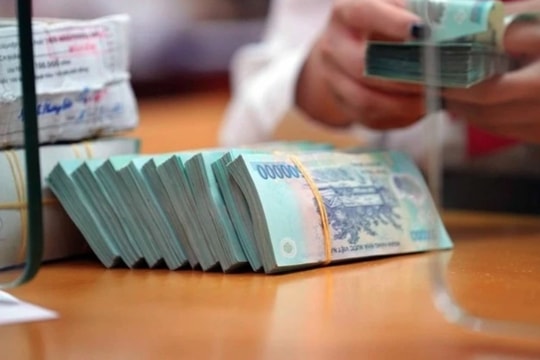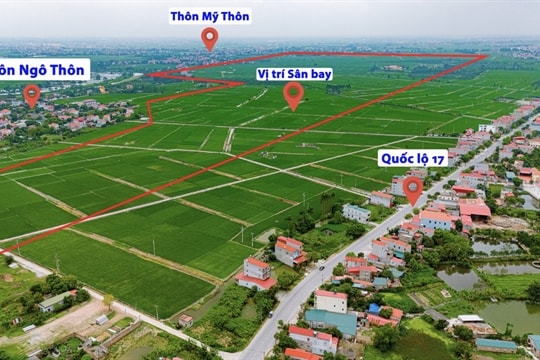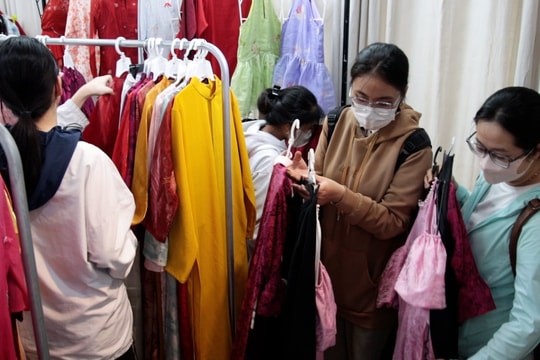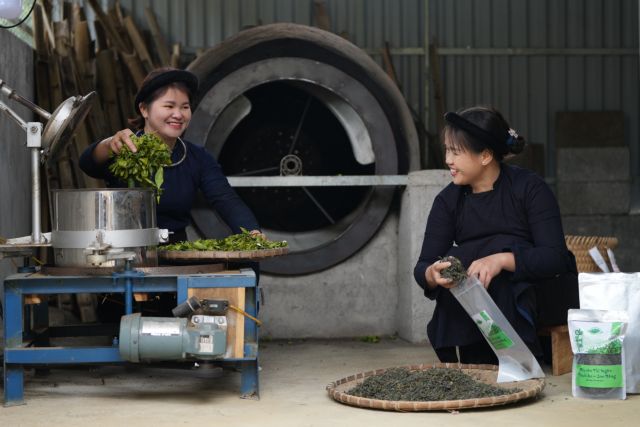 |
| The tea drying machine helps people increase productivity and save a lot of time. VNS Photos |
Hoàng Phạm
CAO BẰNG - The early morning rays illuminate Van Trinh Commune in Thach An District, Cao Bang Province, where Nguyen Thi Lanh and Nong Thi Tho diligently dry their tea for their next order from Hà Nội.
Meanwhile, their fellow members in the recently established Nam Can Common Interest Group (CIG) are busy packaging the tea with their new brand.
Thach An District, renowned for its breath-taking scenery and vibrant farming community, has undergone remarkable transformations in recent years.
At the heart of this metamorphosis are Lanh and Tho, two local farmers from the Tay ethnic group. They have played an important role in promoting tea farming in the region, improving the lives of their fellow farmers and contributing to the sustainable development of the entire community.
“We used to grow tea, but on a small scale, by hand. It was both hard work and labour-intensive to make a breakthrough,” recalled Tho, adding that tea processing then involved small quantities and without any ideas or contacts to the market, she did not know how and where to sell the small surplus.
Tho’s family mostly depended on growing rice, corn and cinnamon to make a living. Things started changing for the better with the implementation of the Commercial Smallholders Support Project (CSSP) in the area.
CSSP aims to address inequality and environmental degradation in rural Viet Nam by building on previous International Fund for Agricultural Development (IFAD) initiatives focused on rural business development.
CSSP will first develop investment and climate change adaptation plans and then support the creation of market-oriented socioeconomic development plans that account for climate challenges. The project will also promote equitable ownership and efficient use of forest resources by developing or strengthening nearly 2,000 common interest groups to implement climate change adaptation technologies and practices.
Tho, together with others, decided to join a common interest group of nine members to start growing tea. The CSSP offered seed investment, technical training in tea farming and a drying machine. The group members took turns contributing time and labour to care for a common area where they could grow tea.
The Project Officer at the Thach An District Office Dinh Huu Tinh emphasised that the support given by CSSP was critical and timely in changing the tea farming landscape.
“CSSP intervention was vital, providing seedlings, training, processing machines, packaging production and labelling for tea. We are also working on trademark registration through the provincial science and technology department,” said Tinh.
He also stressed the importance of tapping into online channels for marketing. “We are now looking into new marketing channels to help the group reach new customers on some of the largest social media platforms in Viet Nam, such as Zalo and Facebook. The tea has a richer taste compared to other regions, so that is a good selling point.”
Tea farming has brought numerous benefits to the local farmers in Thach An District.
“With the new packaging and labelling, it is easier to promote the Thach An tea. Tea farming has significantly improved our lives. It has provided us with a stable income and enhanced our living conditions,” said Lanh, an active member of the CIG group.
Acquiring new skills and techniques
“Through tea farming, we have learned innovative methods for cultivation and tea processing, thereby enhancing the quality of our tea and making us more competitive,” Lanh said.
The farmers have received training on planting, harvesting and processing tea. This knowledge has not only elevated the quality of their tea but has also enabled them to thrive in the market.
In addition to the tangible economic benefits, the tea cultivation model has had a profound positive impact on the environment.
Lanh emphasises the significance of adopting sustainable farming practices. She said: “The tea cultivation model has not only bolstered our economic prosperity but has also contributed to the preservation of our environment. We have embraced sustainable farming practices that safeguard the land and ensure its fertility for future generations. Our tea relies one hundred per cent on natural conditions, without the use of pesticides or chemicals.”
The farmers wholeheartedly embrace eco-friendly techniques, such as using organic fertilisers and employing natural pest control methods, thus guaranteeing the long-term sustainability of their tea farms and fostering ecological harmony.
Tea farming has empowered the farmers in Thach An District, Lanh said.
“Tea has actually generated income for us throughout the year, much higher than rice, corn, or any other traditional crops, due to stable prices in the market. Being part of tea farming has instilled confidence and independence within us as farmers. We have gained knowledge and are better equipped to make informed decisions about our farms.”
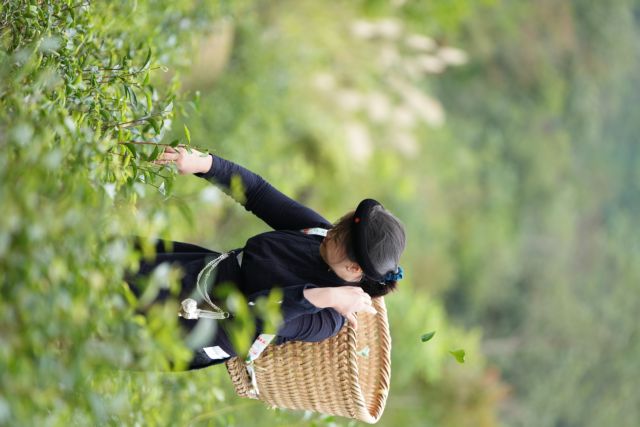 |
| Nong Thi Tho enjoys her harvest season on a serene hill. |
The farmers have become self-reliant, taking charge of their own farms and maximising productivity. Furthermore, tea farming has fostered a sense of community among the farmers.
Highlighting the importance of working together, Tho said “Tea farming has united our community. We exchange experiences, support one another and establish a strong network of tea farmers in the district.”
The farmers actively engage in meaningful dialogue, exchange ideas and provide mutual support, creating a harmonious and collaborative community that propels their collective success.
The success of tea farming has inspired further growth. The local residents and authorities are dedicated to expanding tea farming, ensuring adherence to quality standards and meeting consumer demand. They plan to employ advanced techniques and technologies to make tea farming more sustainable and develop the tea industry in the region. VNS








